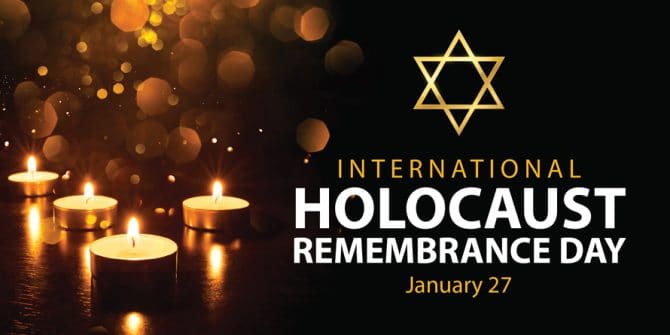
Over the years, I have read books and watched many documentaries about the Holocaust. They are heart-rending. But the most impactful evidence for me have been personal experiences with Holocaust survivors and their liberators.
When I attended Dallas Theological Seminary in the late 90s, I remember going to see Shimon Peres speak at the Dallas TX synagogue. I was probably the only Gentile there. Sitting on one side of me was an elderly woman, on the other an old man. Both had concentration camp tattoos. I’ll never forget.
Peres spoke about the political situation in Israel at the time. The place was packed. I had gone with a Messianic Jewish friend and her mother. We were unable to sit together so I found a single seat. As I recall, the lady was to my immediate left and the gentleman was two seats away on my right. She reminded me of my grandmother. She was gentle and engaging, starting a conversation with me while we waited for Peres to start. Like any good grandmother, she asked if I was married. When I said I was not, she said, “Then we need to find you a nice Jewish boy.” I smiled and said, “I wouldn’t mind, but you do need to know that I am goy (gentile).” I wondered how she could seem so normal after such great suffering. But I didn’t feel that it was appropriate to ask about her experience.
Several years earlier, Andy Rooney had given a powerful testimony on “60 Minutes.” The Holocaust Denial Movement was going strong, and Andy’s reaction was even stronger. With tears in his eyes, he described how he served in WWII as an Army correspondent with “Stars and Stripes.” He was present at the liberation of a concentration camp, Thekla, a sub-camp of Buchenwald.
The following Tuesday, I attended the meeting of the Chehalis American Legion Post. Several members of the post had served with the U.S. Army unit that liberated Dachau. I had never heard them speak about their war experiences, but they did that evening. With tears streaming down, they described what they saw. These eye-witness veterans testified and urged us to never forget and don’t let anyone tell you differently. It happened.
When I went to Israel the first time, I heard from another Holocaust survivor, Zvi Kalisher, a Polish Messianic Jew who worked with The Friends of Israel. I had read Elwood McQuaid’s book about Zvi’s experiences Our tour group also went to Yad Vashem, the holocaust memorial. I don’t know how anyone can experience those exhibits without crying. The documentation is overwhelming. I felt a mixture of anger, grief, and bewilderment that any so-called civilized nation could be so brutal.
The Nazis justified their actions using Darwinian Theory – the survival of the fittest. They set out to annihilate those they considered inferior and sub-human, not just Jews but also Gypsies, the blind and deaf, deformed and developmentally delayed, the mentally ill, homosexuals, and anyone who objected to their actions.
Some Christians, like Dietrich Bonhoeffer, knew that God created all people in His image and were worthy of dignity. They fought back. Corrie ten Boom and others hid Jews. But not enough.
I wonder, what would I have done?
Great to read this, Lynn. You write so well and I connect with your thoughts and emotions on this topic.
What a powerful post, my friend. It is hard to imagine with all the evidence that people choose to believe the Holocaust never happened. Thanks for the timely and beautiful reminder. We should never ignore the pain of anyone who experiences hatred because they don’t fit a template. Glad to see you writing again!